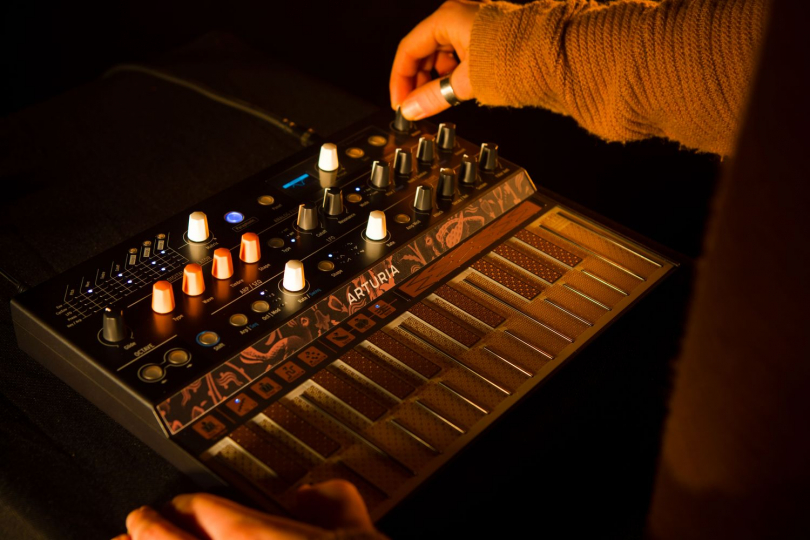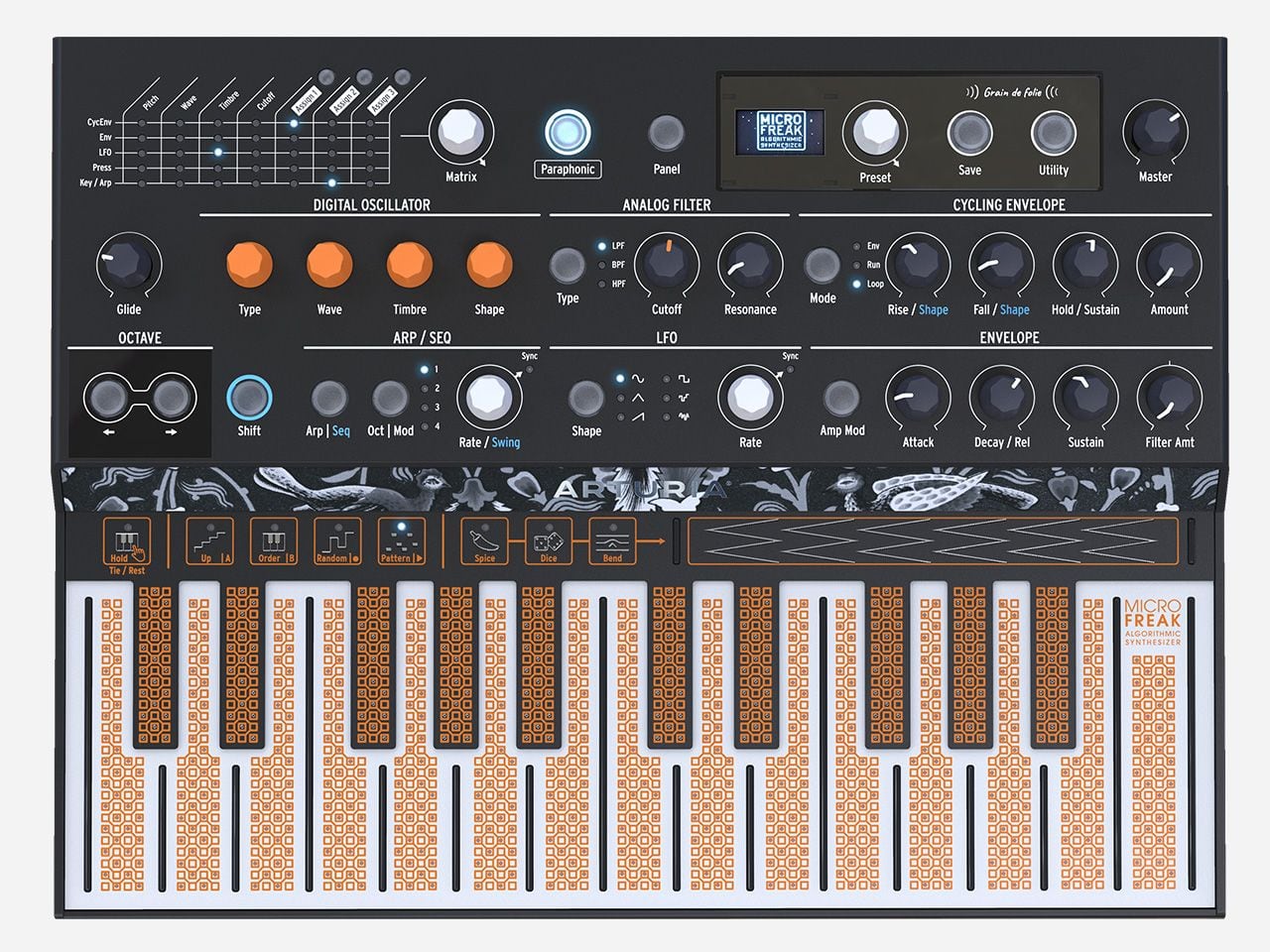
The Perfect Synth Does Not Exist. . . or Does It?
Whether you are a sound engineer, an attentive researcher of niche, sophisticated, and captivating music, or maybe a DJ and less elitist music collector, or simply a fan of electronic music (in the most generic sense of the term), surely you will know what a synthesizer is. Probably, what you may not have discovered yet is what "the sound of the future" is. A little digital/analog hybrid synth called MicroFreak could help you with that.
Synth's rapid evolution
The use of synths in all genres of music is well known. The progress of electronic music has been frightening, and from the first records pioneers in the use of electronic instruments—Suicide's first, self-titled album from 1977 being the One-Above-All in my opinion—the genre today is a field of very different contaminations.
Surely there is the contemporary work of artists such as Alva Noto and Ryuichi Sakamoto, or Iosonouncane, an Italian artist who reached very interesting musical heights with IRA—a very sharp, experimental and perhaps a bit dada product.
It is not possible here to list the names of many other experimental and non-experimental electronic music projects that certainly contributed to a rapid evolution of the genre— but maybe we will return to them in a future article. . . .
Innocent baby toys. . . ?
What I would like to focus on today is a discovery I made in the world of synths, one of those really exciting and enlightening. I have been using electronic instruments for some time in my main music project, 42. I started with some modest MIDI keyboard, then I devoted myself to less conventional and more homely stuff, using electronic support like Korg Monotron Delay and Pocket Operator K.O.—at first glance they look like innocent baby toys, but those who know these gadgets also know the potential they have.
Then, in 2019, MicroFreak arrived.

MicroFreak: a digital/analog hybrid synth with endless possibilities
Arturia is a brand that started in 1999, and produces, among other things, digital and analog synthesizers. I had used the Arturia Keystep for the musical production of an album, and I had had a good experience with really satisfying results, because even if it was a MIDI keyboard, it was very versatile and the sonic response amazing. But I was looking for something more, without having to spend too much money but aiming for more natural, more primordial sounds.
The synthesizer in question answers this problem. MicroFreak, being a hybrid synth, combines the potential that MIDI guarantees in the rendering of the recorded sound—as well as the use of interfaces and recording programs with infinite effects, equalizations, mastering options—with the power of the classic analog synth, thus returning a dirtier and more scratchy sonic patina, and at times unpredictable. What is funny and also unique about MicroFreak is the possibility of inserting the unpredictability of sequences through a function that generates "errors" spontaneously (Spice & Dice). Also advantageous is the fact that there is the possibility of using the Vocoder with the Arturia microphone or even any 3.5mm audio input.
I used this synthesizer for my music production, also connecting the Korg Monotron Delay and the P.O. to it, and the result was fantastic! Usually for my music I don't look for very "catchy" loops and sequences, but I tend to go towards the experimentation of sounds—or rather "sound waves" or "wave frequencies"—to create musical settings related to nature and also to urban noises. Furthermore, in experimentation I usually look for the "loss" of sound, in the sense that the path of the sound wave will never be linear and in a certain sense "pumped", but it will have a decay or a disastrous evolutionary procession, which does not necessarily mean more slow or milder.
Towards the music of the future
The goal I try to achieve with the synth is to get in almost religious contact with it, almost merging with the instrument, in order to understand how the machine reacts, reflects, and sometimes thinks on its own. I can't say if the MicroFreak is the perfect synth, nor if there aren't any better or more exciting ones. The fact is that my personal experience with this little gem has been quite rewarding.
With a type of instrument that gives you the opportunity to experiment with the audacity of Luigi Russolo, who brought futurism into music (or perhaps music into futurism), the options are endless. The fact of having analog and digital together, combining two musical worlds apparently distant in time, well reflects the expectations of professional (and non-professional) musicians. It paves the way to the music of the future.
I just started looking for the sound of the future. . . and you?
Have you taken the MicroFreak for a spin? Do you have any experience with electronic music and analog synthesis? What do you think the music of the future sounds like? Please leave us a comment below!
If you have found an error or typo in the article, please let us know by e-mail info@insounder.org.

